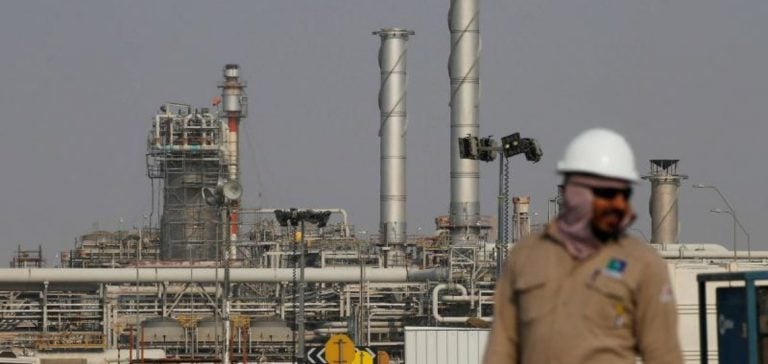Saudi Arabia, a key player in OPEC+, is adjusting its approach to cope with the erosion of its global market share.
For several years, OPEC+’s production reduction strategy has been aimed at stabilizing oil prices, maintaining a reference price of around $100 per barrel.
However, with the rise in power of non-OPEC producers, particularly the United States, this approach is showing its limits.
In 2024, Saudi Arabia decided to abandon this price target.
Instead, it opted to increase production to defend its market share.
This change was seen as necessary, as OPEC+’s share of world supply had fallen to 48%, while that of the United States had risen to 20%.
The kingdom’s decision comes at a time when oil prices have already fallen by 5% this year, affected by sluggish global demand, particularly in China.
OPEC+ and its allies face increased competition
OPEC+’s current strategy is based on a collective reduction in supply to support world prices.
However, this method has failed to curb rising production in other parts of the world, especially the USA, where shale oil technology allows greater flexibility.
As a result, despite Saudi efforts to keep prices high, external competition has captured a growing share of the market.
Riyadh has taken the lead in OPEC+’s efforts to restrict production, reducing its own volumes by almost 2 million barrels a day since 2022.
However, this strategy, initially aimed at limiting supply to stabilize prices, has ended up weakening Saudi Arabia’s position on the world stage.
By increasing production from December 2024, Saudi Arabia is signalling that it prefers to sacrifice high prices in the short term to secure its market share in the long term.
Challenges for other OPEC+ members
The Saudi decision is likely to cause tensions within OPEC+.
Some members, more dependent on high oil prices to balance their budgets, could see this production increase as a threat to their revenues.
Saudi Arabia, with its substantial financial reserves and debt capacity, is better equipped than others to withstand a period of lower prices.
However, this decision could also encourage other members to follow the Saudi example, in turn increasing their production to compensate for lost revenues.
This could lead to a supply glut on the world market, amplifying the downward pressure on prices.
The impact on the more vulnerable OPEC+ countries, whose economies are closely linked to oil revenues, could be significant.
Impact on the global oil market
The increase in Saudi production comes at a time when the market is already faced with an oversupply.
US producers, in particular, have taken advantage of OPEC+ cuts to strengthen their presence on the world market.
Thanks to lower extraction costs, US shale oil production has been able to adapt quickly to price trends.
In response to increased Saudi production, US producers may reduce their investments or turn to more conservative strategies.
This new dynamic could also redefine relations between the major players in the global oil sector.
Saudi Arabia seems determined to regain its leading position, even if this means a temporary drop in revenues.
The Saudi strategy could also mark the beginning of a new era in which market share takes precedence over high prices.
Riyadh’s long-term gamble
Saudi Arabia is counting on its ability to withstand a period of lower prices to regain ground against its competitors.
Riyadh believes that its solid financial reserves will enable it to hold its own against the other major producers, even in an environment of reduced prices.
This long-term gamble could enable it to secure greater market share once global oil demand picks up again.
This shift marks a turning point in Saudi Arabia’s oil strategy, which is no longer aimed solely at sustaining prices, but at reinforcing its dominance of the global oil landscape.
It remains to be seen whether this strategy will pay off in the face of the geopolitical and economic challenges ahead.






















